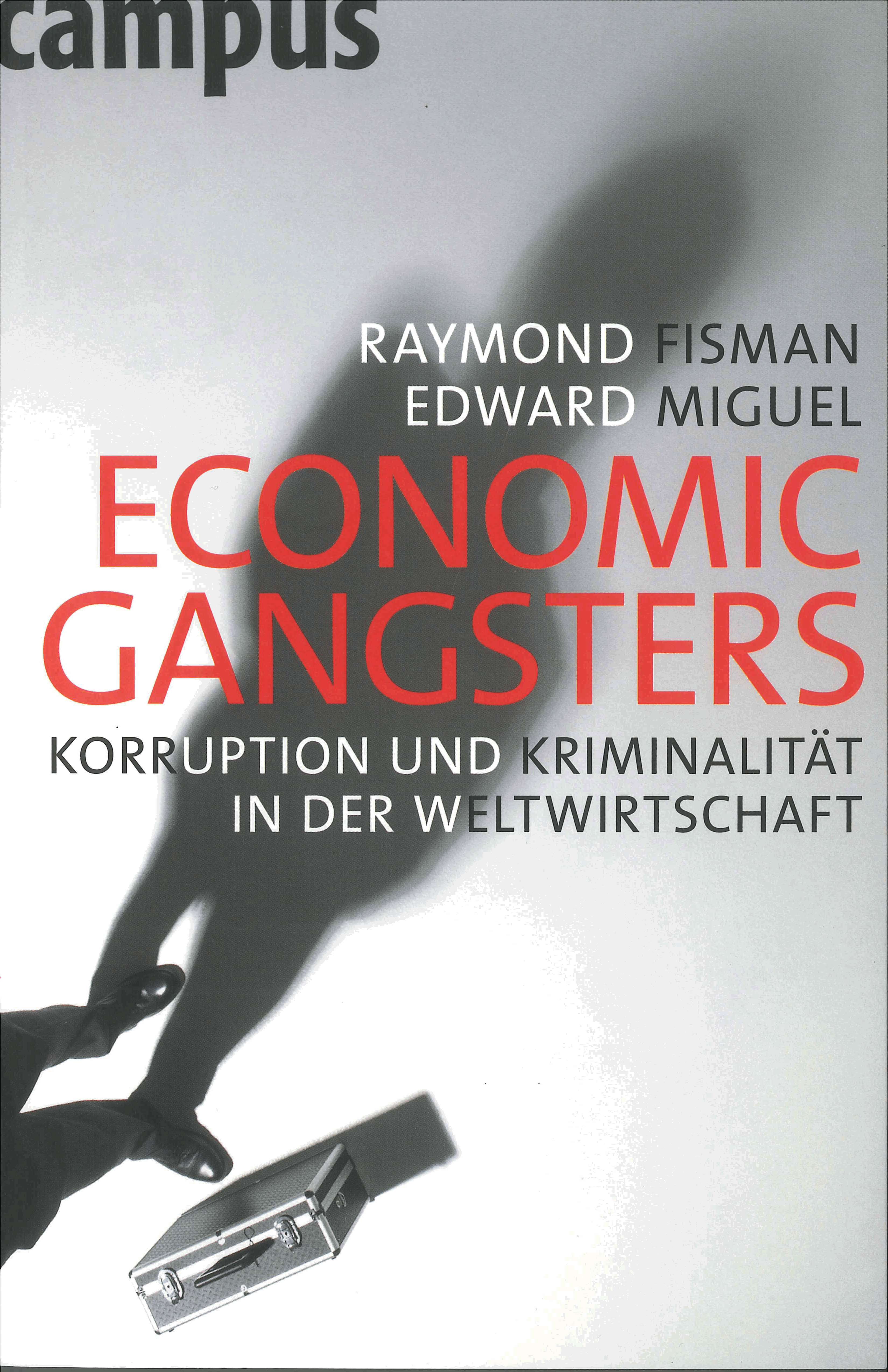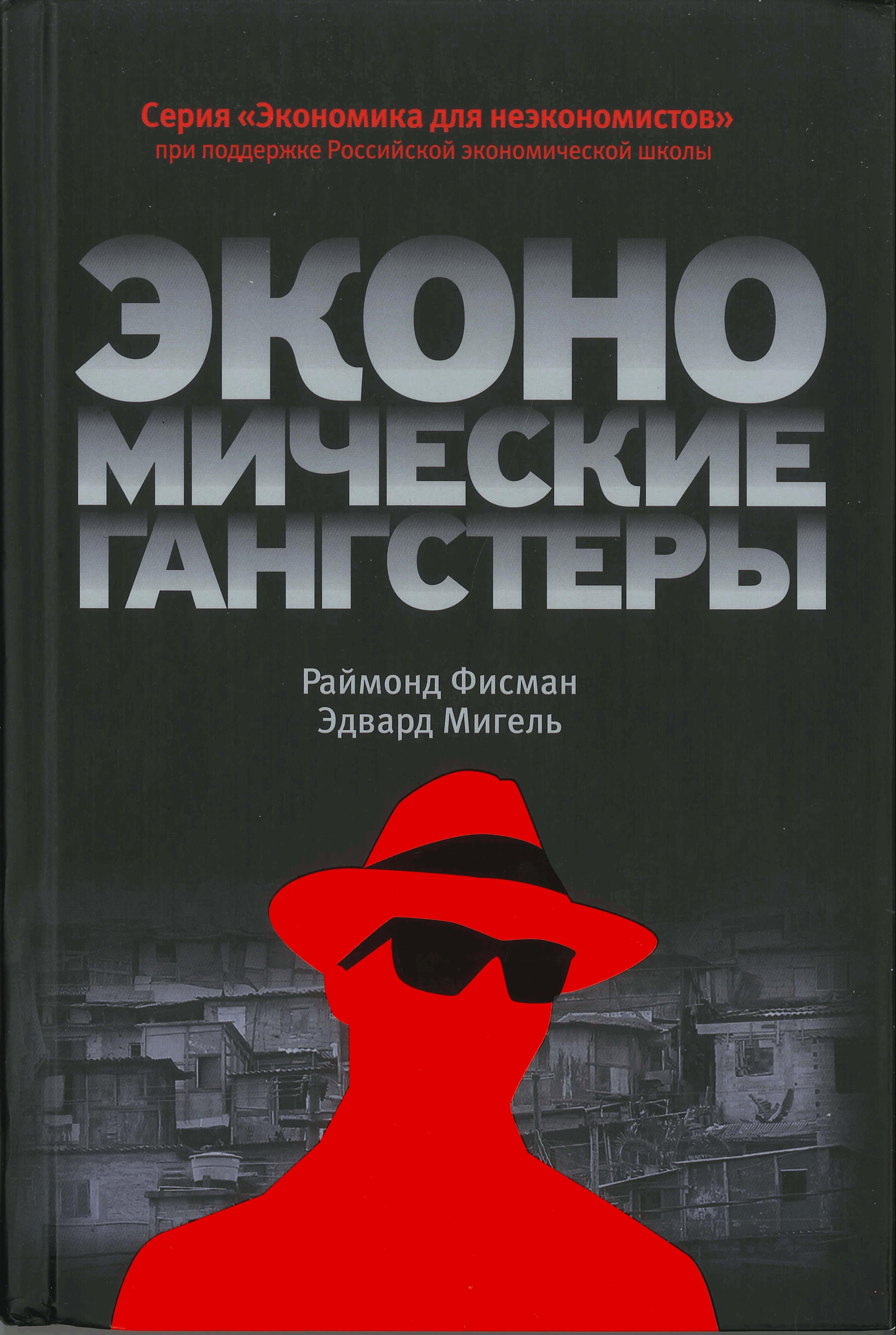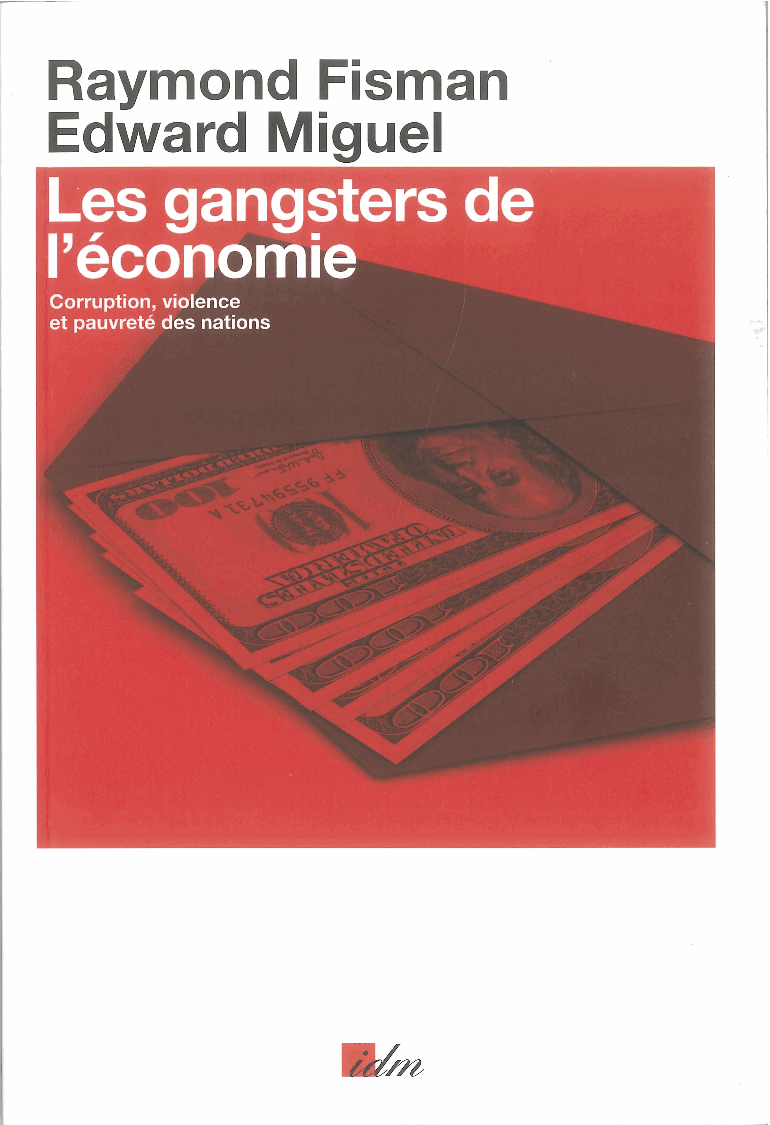Meet the economic gangster. He’s the United Nations diplomat who double-parks his Mercedes on New York City streets at rush hour because the cops can’t touch him–he has diplomatic immunity. He’s the Chinese smuggler who dodges tariffs by magically transforming frozen chickens into frozen turkeys. The dictator, the warlord, the unscrupulous bureaucrat who bilks the developing world of billions in aid. The calculating crook who views stealing and murder as just another part of his business strategy. And, in the wrong set of circumstances, he might just be you. In Economic Gangsters, Raymond Fisman and Edward Miguel take readers into the secretive, chaotic, and brutal worlds inhabited by these lawless and violent thugs. Join these two sleuthing economists as they follow the foreign aid money trail into the grasping hands of corrupt governments and shady underworld characters.
Quotes:
In this surprisingly spry read, authors and economics professors Fisman and Miguel tackle economic development issues in Africa, Asia, and Latin America, beginning with the question: after decades of independence and billions in foreign aid, why are so many developing countries still mired in poverty? . . . This thorough, thoughtful guide to global corruption is an engaging, disarmingly upbeat read for fans of Freakonomics and Malcolm Gladwell.
PublishersWeekly.com
This is sparkling stuff, and the story is enjoyably retold in Fisman and Miguel’s slim new volume, Economic Gangsters. I recommend the book wholeheartedly; it is engaging and confidently written, and it describes research of genuine interest. . . . Economic Gangsters tackles two big ‘institutional’ problems of development economics–corruption and violence–through a series of vignettes based on research studying the value of political connections, smuggling between China and Hong Kong, the links between rainfall and civil war, witch killings in Africa, and rebuilding Vietnam after ‘the American War’.
Tim Hartford, Reason
[S]mart and eminently readable . . . [F]isman and Miguel try to do for global poverty what [Steven] Levitt did for domestic economic issues. For example, they look at the way ‘witches’ are killed in Tanzania whenever rainfalls fail and food is scarce; it turns out that families try to save food by executing less-productive elderly women as witches.
Nicholas Kristof, NYTimes.com’s On the Ground blog
Columbia’s Ray Fisman and Berkeley’s Ted Miguel are two of the most creative and interesting economists I know. Each is driven to better understand just what keeps poor countries in poverty, and they are willing to try some pretty amazing research strategies to figure it out. They have traveled far and wide–both geographically and intellectually–and in their beautifully written book Economic Gangsters, they shine a well-honed statistical spotlight on the twin evils of corruption and violence. The book is a dead-set page turner, and there’s nothing more fun than feeling like you are next to them as they travel the world in search of the scoundrels responsible for so much suffering.
Justin Wolfers, Freakonomics blog
Other Editions:

Chinese 
German 
Russian 
Lithuanian 
French 
Persian 
Turkish Portuguese 
Dutch 
Korean Japanese


